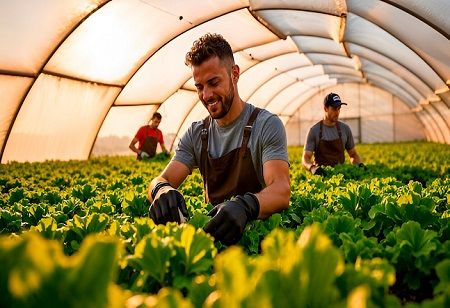
- Uzbekistan to import 100K ruminants, expand wool and textile sectors.
- Tenfold food exports to Mongolia targeted, with tech and talent sharing.
- Govt to subsidize transport, offer tax relief and soft loans for imports.
After the official visit of the President of Uzbekistan, Shavkat Mirziyoyev, to Mongolia in June 2025, a presidential decree was issued to strengthen cooperation with Mongolia's agricultural and food sectors for 2025 - 2026. One target of the decree is to import 100,000 small ruminants from Mongolia to Uzbekistan, with a view to eventually (by 2029) building their stock up to 1 million.
The initiative involves the establishment of the wool and cashmere processing industries and finished textile products. Uzbekistan also plans to increase exports of fruits and vegetables and food products to Mongolia to ten times with uninterrupted annual growth. The decree outlines mechanisms for sharing agricultural expertise and building specialist skills in both countries.
To facilitate livestock imports, the government will pick up 50% of the air transport costs. A deferred VAT payment system will also be established with no interest and no collateral. International financial institutions will offer concessional loans with collateral at 50%.
Also Read: Uzbekistan, Azerbaijan Sign Deals to Boost Industrial Ties
Local governments need to look for capable entrepreneurs with access to feed bases, veterinary assistance and infrastructure. Pasturelands will be set aside to bring in imported animals, with companies that will be importing 1,000 heads or more to also have to do selective breeding and develop special forage crops. In terms of increasing exports, fairs of "Products of Uzbekistan" will be held in Mongolia with support from Uzbek-Mongolian trading houses as well as permanent trading platforms in Ulaanbaatar.
Plans also include centralized imports of fine wool and cashmere from Mongolia to Uzbekistan and the manufacturing of blended yarns and fabrics. The establishment of new textiles enterprises and specialized training programs will also expand the capacity of the industry.
Next steps to cooperate include providing foreign aid to Mongolia for frost-resistant fruit seedlings and drip irrigation technology. Involved are to be joint university programs to grow human capital for agriculture. Deputy Prime Minister Khodjaev will manage to implementation, with ministers and agency heads taking responsibilities. Overall, this decree reflects the two countries' intent to partnership long-term strategically after signed 20 bilateral agreements and a Joint Declaration on Comprehensive Partnership in 2025.

